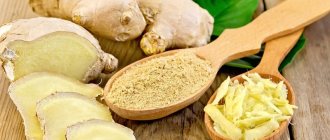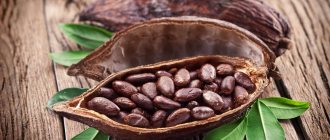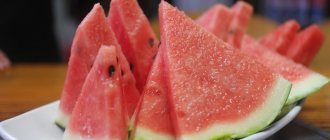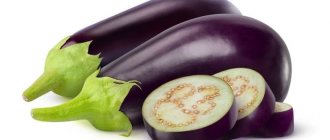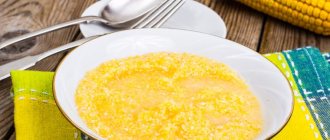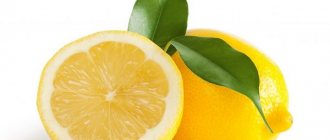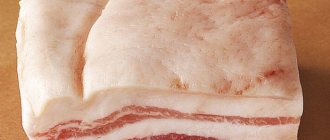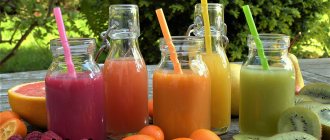Dill during breastfeeding is extremely useful for both the nursing mother and the baby. It relieves infant colic and increases breast milk production. From the article you will learn in what form a nursing woman can eat dill. Learn to prepare dill tea, dill water and other dill infusions at home. Find out how a mother can take dill water from a pharmacy if her baby has colic. Read reviews from experienced mothers who have tried the properties of dill on themselves. You can grow healthy greens on your windowsill and save them for the winter.
When and how to eat dill during breastfeeding?
Dill is a common seasoning used in many dishes to give them a special taste and aroma. This plant has a beneficial effect on the production of breast milk and helps reduce colic in a newborn.
Garden dill (fragrant).
In the first days of a child's life, eating dill is not recommended. A nursing mother can start eating fresh dill from the 10th day after the baby is born. Thus, you can eat dill already in the first month after giving birth. Add dill to soups, salads, side dishes and meat. As a rule, a newborn baby tolerates fresh dill well on his mother’s menu. However, there are times when an infant’s immature intestinal system reacts negatively to dill. In this case, eat dried dill. How to dry dill will be discussed in detail later in this article. And you can try fresh dill and parsley again in the second month of the baby’s life.
During breastfeeding, dill extract should not be consumed, as it can cause allergies in the baby.
Useful properties of dill
Dill can help not only treat some diseases, but also prevent many diseases. Dill is rich in phosphorus, calcium, potassium, zinc and iron. Dill is also rich in large amounts of vitamins B, C, E, folic acid and carotene (an antioxidant).
The use of dill is advisable in the following cases:
- For allergic reactions. Allergies are often accompanied by skin rashes and itching, which can be relieved by an infusion of dill seeds. Dill not only relieves inflammation, but also heals wounds.
- For the treatment of cough. Dill is known for its expectorant properties. Drinking a medicinal decoction of dill will help speed up the cleansing of the respiratory tract and the removal of mucus.
- For the treatment and prevention of cystitis. A decoction of dill seeds has remarkable diuretic properties.
- In case of loss of appetite. Eating dill will guarantee a good appetite, as it will lead to the active production of gastric juice.
- For bloating. Dill contains fiber, which helps cleanse the intestines, thereby eliminating the causes of bloating.
- To strengthen the immune system. Dill has a strengthening effect on the entire body. Since after childbirth a woman’s body needs restoration, dill can become the most accessible and indispensable remedy. Dill is especially useful during viral infections.
- For metabolic disorders. Eating dill normalizes digestion.
- To normalize blood pressure. Dill is indicated for hypertensive patients, as it perfectly lowers blood pressure.
- For the prevention of heart disease. Anetin, which is part of dill, is able to dilate blood vessels and capillaries. Thus, dill is a wonderful antispasmodic remedy.
Benefits for nursing mothers
Properties of dill:
- increases lactation;
- helps cope with insomnia;
- improves vision;
- helps get rid of edema due to its diuretic effect;
- normalizes blood pressure in hypertension;
- helps cope with constipation by enhancing intestinal motility, speeds up food digestion, and normalizes stomach acidity;
- has a carminative effect, which eliminates excess gases in the intestines of the baby and mother (this is especially true for nursing mothers who have had a cesarean section, since gases in the intestines put pressure on the fresh scar and cause pain);
- strengthens the immune system, increases the body's resistance to viral infections, removes phlegm and helps get rid of wet cough;
- cleanses the blood of cholesterol, has a positive effect on the nervous and cardiovascular systems;
- prevents sudden jumps and reduces blood sugar levels in diabetes mellitus, normalizes its value;
- helps with headaches.
Dill composition:
- vitamins of groups A, B, C, E, PP;
- calcium;
- potassium;
- magnesium;
- phosphorus;
- sodium;
- iron;
- nicotinic and folic acids;
- carotene;
- routine;
- anetin.
Dill contains a lot of fiber, which is why it has a beneficial effect on intestinal function.
Vitamin K, which is synthesized independently in the body in an adult, gives particular importance to greens during breastfeeding. In infants, the intestines cannot yet produce this vitamin. Vitamin K is necessary for newborns for the formation of bone mass and hematopoiesis.
Pediatricians recommend starting a baby's introduction to greens through mother's milk with dill, then parsley, later green onions, lettuce, cilantro and other greens.
You can add fresh dill to a nursing mother’s dishes every day, if there are no contraindications.
The effect of the product on the body of a nursing mother and child: benefits and harms
Due to the rich content of vitamins and minerals, dill in any form has a beneficial effect on the body of a nursing mother and child. The official instructions for the pharmacological group classify the herb as an antispasmodic agent of plant origin. In addition to this effect, dill has the following effects:
- expectorant;
- anti-inflammatory;
- hypotensive;
- choleretic;
- carminative;
- lactogenic.
The plant has a complex effect on the body of a nursing mother and child. Due to the high content of fiber, essential oils, vitamins, and minerals, dill improves the functioning of the digestive tract, removes toxins, normalizes energy metabolism, and increases appetite. Women who breastfeed often suffer from intestinal problems: pain, flatulence, constipation. Using fresh herbs or a decoction of seeds as part of complex therapy can significantly alleviate unpleasant symptoms.
B vitamins and other minerals in dill have a positive effect on heart function and reduce cholesterol levels in the blood. The plant will be especially useful for women with high blood pressure. Hypotonic patients need to be careful when taking both fresh herbs and seed decoctions so as not to cause dizziness and fainting.
Infusions can be used as expectorants for inflammatory processes in the respiratory tract, facilitating the separation and release of sputum. Vitamin C helps maintain immunity at the proper level. In folk medicine, decoctions of seeds are used to prevent hemorrhoids and externally as a wound-healing and antiseptic agent. Dill is also known to have a calming effect in emotionally unstable conditions, which often worries nursing mothers.
The B vitamins contained in dill will help a nursing mother normalize sleep, relieve depression and insomnia, and cope with severe fatigue
Effect on breast milk
Official instructions classify dill as a herb that promotes milk production in nursing mothers. But in the section for use during breastfeeding it is stipulated that use is possible if the benefit to the mother is higher than the harm to the child. This information means that there have been no studies on the effects of dill on increasing milk supply in lactating women. Moreover, none of the herbs that are included in the known lactogenic preparations have an evidence-based scientific basis for any effect on lactation.
Lactation consultants believe that all herbs, teas, and pills to enhance lactation work according to the placebo effect. A woman buys an advertised miracle remedy, firmly believing that it will help. He drinks and relaxes. And the mother’s peace of mind contributes to sufficient production of breast milk and its unhindered supply. In cases where the child does not have enough food, herbs are turned to last or used as an aid in the complex struggle for long-term natural feeding of the child.
Of course, dill, like other herbs, has long been used to enhance lactation, but reviews from nursing women are so contradictory that even long-term practice of using decoctions over many generations does not prove its effectiveness. Today we can say with confidence that dill has no effect on breast milk.
Is dill a highly allergenic product?
In the age of widespread allergic reactions in a large number of adults and children, a nursing woman has to use new foods and medications with caution. Many herbs included in preparations for increasing lactation can cause negative manifestations in both mother and baby. For example, cumin, anise, fennel, etc. Dill will confidently take the last position in this list, since in rare cases it causes side effects. If a nursing woman likes the tart taste of a fresh plant or decoction and it brings her positive emotions, then she can use it after agreeing on the dosage and duration of use with her pediatrician.
The big advantage of dill compared to its closest relative, fennel, is its low allergenicity, which is very important for a nursing mother and baby.
Dill seeds for lactation
Dill is a natural remedy that has lactogenic properties. With regular use, it increases breast milk production. Even inhaling the aroma of this herb can increase lactation. At the same time, there is no negative effect for both mother and baby. The only negative is that if you abuse dill drink, drowsiness increases. Therefore, we recommend drinking less in the morning and more in the evening. To sleep well at night.
According to studies conducted in 2021, drinking dill tea by a nursing mother can ease lactation crises. This is the period when the baby has grown and needs more breast milk than the mother's breasts produce. This period lasts about three days. After the lactation crisis, the amount of breast milk produced increases and everything returns to normal.
Lyudmila, 25 years old
Girls, I am writing with tears in my eyes. At the age of three months, my son refused to breastfeed. I had a lactation crisis and didn’t have enough milk. The baby cried and demanded the breast, I didn’t know what to do and bought formula. It was a fatal mistake. A couple of days later, a friend came to see me and, having heard about my problem, told me about dill drinks to increase lactation. But it was already too late. My son got used to the bottle and formula and no longer wanted to breastfeed. Girls, don’t repeat my mistake, drink dill, endure these three days and everything will be fine with breastfeeding.
Not all herbs are created equal. For example, tea with sage or mint is used to stop lactation.
Dill tea recipe for nursing mother
Dill tea helps the body of a nursing mother quickly produce milk in the amount necessary for the baby. It will be especially useful for hypolactation. Drink this drink hot or warm for greater effect. When breastfeeding, it is recommended to drink 2-3 liters of fluid per day. This is a very important condition for good breast milk production. Hot dill tea in large quantities is the best drink option for a nursing mother.
Important! If you suffer from hypotension (low blood pressure), then do not overuse dill tea and dill in general. Eating large amounts of dill in any form significantly lowers blood pressure.
Ingredients:
- Dry dill seeds - 1 tablespoon.
Place the dill seeds in a bowl where you can easily grind them. - Boiled water - 1 glass.
Preparation : Grind dill seeds and add hot water.
I crushed the seeds with a regular wooden mashed potato masher.
Infuse the tea covered for about an hour, then strain.
Pour the crushed seeds into a glass, fill with hot water, cover with a lid and leave for half an hour.
After time, the seeds will sink to the bottom of the glass, and the water will take on a tea color.
It is not necessary to strain the drink since all the brewed seeds ended up at the bottom. But it’s more pleasant for me.
Healthy dill tea is ready!
The seeds need to be crushed in order to extract the maximum nutrients from them.
Application : Drink tea during the day before feeding your newborn, always warm or hot, 30 minutes before feeding.
Result : Dill tea helps to relax, calm down, relieves stress and tension, normalizes the gastrointestinal tract (gastrointestinal tract), and sleep. If taken regularly, lactation increases and the quality of breast milk improves.
Dill water recipe for a nursing mother
There are 3 types of seeds in this water. They all have similar properties: anti-inflammatory, antiseptic, carminative. These seeds increase the secretion of the mammary glands, which leads to increased production of breast milk and stimulate the motor function of the uterus, helping it to contract. A woman needs this after childbirth.
When drinking dill water, carefully monitor the baby’s condition for the first three days, as one of the herbs can cause an allergic reaction in the form of redness on the skin. If this happens, immediately stop drinking dill water and watch your baby. If the situation worsens, consult a doctor. If the redness goes away, then give up water with herbs for a month and just drink dill tea.
Ingredients:
- Dill seeds.
- Fennel seeds.
- Anise seeds.
- Boiled water - 1 glass.
Take all seeds in equal quantities.
Method of preparation at home : Pour the seeds into a coffee grinder (after washing it thoroughly before doing this) and grind or grind the seeds with a mortar. Take 1 tablespoon of the resulting powder and add hot water. Leave the solution for about 30 minutes.
How to take : Drink half a glass of dill water in the morning and evening 20 minutes before feeding your baby.
Result : Dill water, when consumed regularly, increases lactation, helps cope with constipation, improves well-being, helps overcome postpartum depression, and calms.
Even if there is enough milk, a mother can drink dill water while breastfeeding to prevent hypolactation, stress, and constipation.
Together with dill, a nursing mother can take other herbs that increase lactation: hawthorn, nettle, lemon balm, chamomile, cumin, oregano. It is important to remember the main rule: introduce each new product into the mother’s diet separately, no more than one product every 3 days. This is done so that it can be determined to which product the baby is allergic, if any.
Reviews
Olga, 27 years old
I brewed fennel seeds and dill seeds, and simply ate dill in fresh and frozen form, there was enough milk and there were no colics)))) Of course, maybe they wouldn’t have existed without it….
Nina, 20 years old
I drank dill tea (brewed dill seeds, which can be bought at a pharmacy as an herbal tea) during breastfeeding - it greatly increases lactation)))
Lelya, 29 years old
You can give your child dill water to drink if there are no problems with lactation, otherwise you drink and there will be much more milk.
Nona, 33 years old
It didn’t help me at all for lactation.
Natalya, 28 years old
I drank dill water, it didn’t matter, my son still had a stomach ache, we saved ourselves with sub simplex. And during that period my milk kept disappearing and disappearing.
Healing effects of dill
Pediatricians strongly recommend that every mother consume dill during breastfeeding. This product helps maintain normal breast milk production and helps restore the female body after childbirth in a short time. This type of greenery can be used to eliminate baby’s bloating, colic, relieve pain, and normalize the functioning of the gastrointestinal tract.
In addition, the benefits of dill for breastfeeding include:
- strengthening the protective qualities of the body;
- prevention of viral and infectious diseases;
- acceleration of metabolism;
- maintaining cholesterol levels;
- improving visual function;
- normalization of gastrointestinal tract activity;
- preventing the occurrence of diseases of the cardiovascular system;
- expansion of capillaries and blood vessels;
- decrease in blood pressure;
- improving appetite;
- assistance in the treatment of cystitis;
- removing mucus from the respiratory tract, treating cough;
- relieving skin itching, healing wounds, stopping inflammatory processes due to allergies (when using dill oil or infusion for external use);
- increasing resistance to stressful situations;
- eliminating insomnia;
- increased lactation.
The positive qualities of dill for a nursing mother and baby are due to its rich chemical composition.
| Name of useful substance | Main action |
| Vitamin A | Restoration of the epidermis, improvement of hair structure and prevention of hair loss, preservation of visual function. |
| B1 | Stimulation of brain activity, stabilization of metabolic processes, activation of concentration. |
| B2 | Maintaining the activity of the visual organ, eliminating fatigue, psycho-emotional stress, rapid restoration of body systems. |
| B5 | Regulates the activity of the cardiovascular system, slows down the aging process, prevents the formation of gray hair and wrinkles. |
| B6 | Normalization of the heart, blood vessels, therapy and prevention of colds. |
| B9 | Improving the quality of sleep, eliminating stressful conditions, restless sleep, increased fatigue, strengthening gums. |
| E | Stabilization of hormonal balance, healing of wounds, ensuring hematopoiesis, slowing down the aging process. |
| C | Strengthening the body's protective properties, preventing diseases of viral origin, dilating blood vessels, ensuring normal blood formation, improving mood. |
| PP | Saturating the body with energy, preventing the development of pathologies of the cardiovascular system, relieving inflammation of the mucous membranes, maintaining cholesterol levels. |
| Iron (Fe) | Normalization of hemoglobin levels, therapy and prevention of anemia, cleansing the body, stimulating metabolism, improving blood quality, increasing immune properties. |
| Calcium (Ca) | Strengthening bones, tooth enamel, ensuring normal blood clotting, regulating heart rate. |
| Sodium (Na) | Thinning sputum, softening cough, improving the functioning of the digestive tract, removing harmful elements from the body, regulating water-salt metabolism. |
| Potassium (K) | Normalizes blood pressure, saturates the body with energy, increases muscle tone, eliminates swelling. |
| Phosphorus (P) | Strengthening tooth enamel, bone skeleton, improving memory, activating mental activity, maintaining normal kidney function. |
| Magnesium (Mg) | Improving the functioning of the cardiovascular system, increasing protective qualities, eliminating spasms, stabilizing the functioning of the central nervous system. |
Dill water for a nursing mother against colic in a child
For colic in babies, dill water is used. It removes gases and relieves pain in the intestines. To prepare it, use dry fennel seeds, dry dill seeds or fennel essential oil.
Don't confuse fennel with dill. These plants look similar and have similar properties, but the smell of fennel is reminiscent of anise and tarragon. Fennel is a stronger remedy for infant colic than dill. That is why it is more often used in pharmacology. Fennel is called “pharmaceutical dill”, and real dill (the one that grows in the beds) is called “garden dill”, or “fragrant dill”.
Appearance of fennel seeds and fragrant dill.
Pediatricians often prescribe chemical remedies for infant colic. For example, Espumisan, Hilak Forte, Linex, Sub Simplex.
We believe that dill water is better, since it is a natural remedy, helps naturally with intestinal colic, is cheaper and safer (does not cause side effects).
You do not need to give dill water to your baby if you yourself eat fresh or dried dill, drink dill tea or dill water. First, try taking dill for 3 days and if colic continues to bother your baby, prepare one of the following remedies for the child.
Any of these infusions can be taken by a nursing mother for colic in a child in unlimited quantities before breastfeeding, with the exception of contraindications.
Fennel seed infusion
Fennel seeds and baby water can be purchased at the pharmacy.
Ingredients:
- Dry fennel seeds - 3 gr. (about 1 teaspoon).
- Baby water - 1 glass.
Preparation : Grind fennel seeds, add hot water. Let the fennel steep for about 60 minutes, then strain.
Application : Store the infusion in the refrigerator for no more than 30 days. Before use, heat in a water bath to 37–40°C. Give the tincture to your baby before or after feeding from a teaspoon 3 times a day. For severe colic, you can increase up to 6 times a day. For a newborn, measure 15 drops of infusion. From about one and a half months of age, give 25 drops.
Result : Dill water from fennel seeds helps remove gases and get rid of colic in a newborn.
Recipe for dill water from fennel essential oil
Ingredients:
- Fennel essential oil - 0.05 g (about 1 drop).
- Baby or boiled water - 1 liter.
Preparation : Dissolve essential oil in water.
Application : Give the resulting solution to the baby 1 teaspoon before or after meals up to three times a day. For severe colic, you can double the dose.
Result : The newborn will no longer be bothered by colic, partially or completely.
Infusion of dill seeds
If you yourself have grown dill for seeds or you know gardeners, this is a great option. Otherwise, dry, fragrant seeds can be purchased at a pharmacy or herbal store.
Ingredients:
- Dry dill seeds - 1 teaspoon.
- Baby water - 1 glass.
Preparation : Boil baby water, cool to 60–70°C and pour it over the dill seeds. Let the solution sit for one hour and strain.
Application : Store the infusion in the refrigerator for no more than a month. Before use, heat the required amount of infusion in a water bath to room temperature. Give your baby dill tincture before or after spoon feeding up to six times a day.
Result : An infusion of dill seeds will help painlessly remove gases from the intestines and alleviate ailments.
How does dill help the baby?
Many mothers experience such unpleasant phenomena as colic, increased gas production or bloating in the baby. He cries a lot, bends over, and it is simply impossible to rock or calm him down. The cause of colic is air bubbles that irritate the baby's intestines and cause pain.
For decades, mothers have been saving their children with dill water, which can alleviate the child’s suffering and eliminate tummy bloating. It can be bought ready-made in pharmacies, but remember that the shelf life of such water does not exceed ten days if stored in the refrigerator.
At the pharmacy you can buy a ready-made preparation based on fennel seeds “Plantex”, packaged in sachets. It is diluted with boiled water at room temperature and given to the baby from two weeks of age. Before using it, it is advisable to consult a pediatrician.
How to prepare dill water at home?
Fennel seeds are used to prepare it. It looks similar to regular fragrant dill, but has a more pronounced taste and aroma.
Dill water recipe for baby:
- Grind a tablespoon of fennel seeds in a blender or coffee grinder and pour a glass of boiling water;
- Leave for an hour and strain.
For babies up to a month old, it is recommended to drip 15 drops of dill water onto the tongue at one time. For older people, you can increase the dose to 25 drops. It is better to discuss the number of doses per day with your pediatrician. Usually, babies up to a month old are given dill water 2-3 times a day between feedings, and older children – 4-5 times. Dill water can be diluted in expressed breast milk or in prepared formula.
Regular consumption of dill water does not cause addiction in a child and can have a positive effect on the overall well-being of the baby. It can also be given to prevent colic. The baby will become calmer, cry less and you will be able to truly enjoy the joy of motherhood.
READ IN MORE DETAIL: Dill water for newborns: recipe for making dill water, benefits and how much to give to baby -
How can a nursing mother take dill water from a pharmacy?
If you do not want to prepare dill water yourself, we recommend buying filter bags of children’s herbal tea called “Dill Water” at the pharmacy. Which contains fennel fruits and nothing else.
Brew 1 filter bag in 1 glass of hot boiled water. Let it brew for 15 minutes and squeeze the bag into a glass. Take half a glass 20–30 minutes before breastfeeding.
Instructions for using pharmaceutical dill water.
External use
Dill can be used to improve your appearance and well-being using the following recipes:
Dill compress
Ingredients:
- Dill greens - 1 tablespoon.
- Boiled water - 1 glass.
Preparation : Pour hot water over the dill. Let sit covered for 30–60 minutes.
Application : Soak a cotton pad in the infusion and apply to the eyes.
Result : The compress eliminates dark circles under the eyes, tones the skin, relieves fatigue, and gives a feeling of freshness and vigor.
Ice with dill
Ingredients:
- Dill greens - a bunch.
- Boiled water.
Preparation : Place the dill greens in a ceramic or glass bowl, mash the dill with a mortar and pour boiled water in a 1:1 ratio. Mix well. Pour the resulting solution into ice cube trays and place in the freezer.
Application : Wipe your face with an ice cube in the morning after washing.
Result : This procedure revitalizes facial skin and gives it a radiant and fresh look.
Doctor Komarovsky's opinion
The famous TV presenter Dr. Komarovsky, beloved by parents, believes that dill water should be given to newborn children. The doctor claims that dill water has never harmed anyone.
Komarovsky believes that dill water does not help much as a remedy for colic, since there is very little dill in such water and it has minimal effect on the child’s body. The benefit of such water is that being in a hot apartment, a newborn baby needs more liquid than in normal climatic conditions (air temperature 18–23°C, humidity 40–60%). If you do not give your baby water, he will overeat breast milk in an attempt to quench his thirst, which will lead to excessive weight gain.
Dr. Komarovsky advises giving dill water to infants. It definitely can't get any worse!
How is dill water good for an infant?
Every infant, without exception, suffers from colic - abdominal pain accompanied by increased gas formation and bloating. Colic causes great discomfort to the baby: the child is constantly capricious, cries for no apparent reason, and the baby's sleep is very restless and intermittent. Many mothers resort to using expensive pharmaceutical drugs in the hope of making their baby feel better. Meanwhile, ordinary dill can help a child during colic. A decoction made from dill is an excellent preventative against colic. This dill water will quickly relieve acute pain, which means the child will become calmer. In addition, this remedy is not addictive.
Dill water should be prepared not from ordinary dill, but from fennel. It has a richer aroma and taste. You can prepare dill water as follows:
- Grind fennel seeds using a blender or coffee grinder.
- Pour boiling water over the crushed fennel seeds at the rate of 1 tablespoon per 1 cup of boiling water.
- Cover the broth to let it steep (at least 60 minutes).
- Strain.
It is still recommended to consult with a pediatrician and clarify what daily dose can be given to the child. After all, it is necessary to take into account not only the age of the child, but also the weight, as well as the individual characteristics of the child’s body. For example, it is not advisable to give dill water to children under 2 weeks of age. Children aged 2 to 4 weeks are given dill water 3 times a day, 10 drops. Infants aged 2 to 4 months can also be given dill water 3 times a day, but increasing the dose to 20 drops. Dill water is given to a child in the following way: either the required number of drops are dripped onto the tongue and washed down with breast milk, or added to expressed breast milk or formula.
If for some reason it is not possible to prepare dill water yourself, then you can purchase preparations based on dill seeds at the pharmacy.
How to grow dill and prepare it for the winter
It's easier to buy greens in a store or market. But is it really that useful? Often, farmers, in pursuit of profit, push the concern for consumer health into the background, fertilizing the land and spraying plants with chemicals. This dill grows quickly, acquires a bright green color and an appetizing appearance. However, it can not only be of little use, but even harmful.
Daria, 33 years old
When my third daughter was born, the whole family moved to live in the village. We decided that fresh air and natural products would benefit the family’s health. Then I learned that villagers grow food for sale and for themselves in different ways. What they grow for sale may be even worse than the goods sold in stores. After all, large supermarkets have certificates for the products they sell. Such products must meet minimum quality standards. If you buy products at the market from farmers or villagers, then you have no guarantee that these products were grown without harmful chemicals.
Over time, I made friends with local housewives and asked them to sell me the products that they grow “for themselves.” When the whole family returned to the city, I began to buy greens, vegetables, meat and dairy products only in large supermarkets. And I grow what I can on my windowsill. These are onions, dill, parsley.
We grow dill with our own hands
To grow dill you will need a pot, soil (you can buy soil for seedlings in the store) and dill seeds.
- Pour warm water into a saucer, place cotton wool, toilet paper or napkins in the saucer until they are completely wet. Sprinkle dill seeds on top.
I took a paper kitchen towel, folded it 4 times, filled it with water until it was completely saturated and planted the dill seeds. - Place the saucer on or under a radiator or other warm place. Don't forget to add water. Wipes with seeds should always be damp.
- You can wrap the saucer in a plastic bag to prevent moisture from evaporating.
The napkin will remain wet in the bag for a long time. The main thing is to remove the bag when the seeds begin to germinate and quickly replant them in the ground. - After a few days, when the seeds swell and germinate, plant them in the ground.
- After 1-2 weeks, dill sprouts will appear and you will soon be able to harvest.
- Water the soil as it dries out. Dill does not require any more care.
Harvesting greens for the winter
Nursing mothers are prohibited from eating any canned food. Thus, all that remains for harvesting for the winter is freezing and drying. When frozen, the product retains all its beneficial properties. Not all breastfeeding women have freezers as spacious as they would like. And then drying comes to the rescue. Dried herbs are also useful.
Freezing
- In summer or early autumn, purchase a large amount of dill from a trusted seller.
- Wash and chop the greens as usual.
- Place the greens in a plastic bag or several. I get several bags for the winter, since our family loves dill.
Chopped dill, placed in a food bag to freeze for the winter. - Tie the bags tightly.
Frozen dill retains all its beneficial properties. It is indispensable for breastfeeding in the winter and spring, when there are few fresh natural products on sale. - When it's time to use frozen herbs for cooking, simply open the bag and sprinkle the desired amount of dill into your food. You may need to crush the bag a little with your fingers so that the dill begins to fall out of the bag.
You can freeze not only dill alone, but also make a mixture of herbs. For example, dill with parsley. Frozen greens can be stored in the freezer for up to 12 months.
Drying
- In summer or early autumn, purchase a large amount of dill from a trusted seller.
- Rinse greens thoroughly to remove insects. If you are not sure that you have coped with this task, then soak the dill in water for two hours.
- It is convenient to dry large dill branches by tying them into bunches with a cotton rag at the base and hanging them in a ventilated place. This could be an attic or a barn. It is important that the dill bunches are not exposed to direct sunlight.
- Dry thin fluffy dill branches by spreading them on white paper. Make sure that they are not exposed to direct sunlight. Do not use newspapers, as the greenery will come into contact with the printing ink and absorb these harmful components.
- After the dill has dried, crush it with your fingers to a powder and pour it into an opaque jar with a tight lid.
Dried dill.
Dried herbs can be stored at room temperature for no more than two years.
It is not recommended to dry dill in the oven or microwave, since when heated, dill retains its color and aroma, but loses most of its beneficial components.
For the same reason, nutritionists recommend pouring greens into a plate immediately before serving. This is especially important for nursing women, because they must provide their infant with a maximum of vitamins.
Dill seeds: how to brew and drink drinks from this plant
Dill seeds are also actively used to stimulate lactation. They are enriched with vitamins A and C, which helps strengthen the immune system of a nursing mother. The mineral composition is represented by manganese, copper, calcium and phosphorus. Essential oils that have an antimicrobial effect are also useful.
Dill is a natural medicine that is used for many diseases. The plant has antispasmodic, sedative, carminative, choleretic, and diuretic effects. And during breastfeeding, regular consumption of tea or infusion helps to increase the formation of nutrient fluid.
Dill has a specific smell, unique only to this plant.
Infusion or dill water from the fruits of the plant
An infusion of dill seeds is prepared according to the same recipe as with fennel. You can take it in the same way or slightly change the scheme: divide 200 ml of the resulting drink into three equal parts and drink it in small sips twenty minutes before meals.
Some women prefer to sweeten the infusion a little to drown out the specific taste of dill. Experts recommend not adding sugar, but using honey for these purposes. But only on condition that the baby is not allergic to this valuable gift of bees.
How to brew dill seeds for lactation
The method of preparing the decoction is slightly different from the infusion, but the process itself will not take much time.
- Prepare a special container that can be put on fire or heated in a water bath.
- Grind one tablespoon of the plant's fruits.
- Pour the resulting dry mixture with one liter of boiling water.
- Place on low heat and heat for 5 minutes.
- Remove the broth from the stove and let cool.
conclusions
- A nursing mother can start eating fresh dill from the 10th day of her baby’s life. Add herbs as a seasoning to any dish.
- Dill and fennel seeds are used to prepare water, tea or tinctures to increase lactation and for colic in an infant. A nursing mother can either drink the above drinks herself and pass on their beneficial properties to the baby through breast milk, or feed the baby with a spoon.
- Dill can be used to prepare products for external use.
- Reviews from nursing mothers are contradictory. Half of mothers claim that dill medicines helped them increase lactation and get rid of infant colic. The other half did not get the desired effect. However, everyone, including Dr. Komarovsky, agrees that dill drinks cannot harm a child.
- The most useful dill is grown with your own hands. For the winter, dill can be frozen or dried.
Dill recipes to increase lactation
For example, to increase the amount of breast milk, a nursing mother can try drinking a dill cocktail or tea with dill. These drinks will not only have a positive effect on lactation, but will also have a calming effect on a nursing mother and will perfectly prevent signs of postpartum depression.
The easiest way to prepare a dill cocktail is this:
- Grind the dill seeds with a blender or coffee grinder (for variety, you can add anise and fennel in equal quantities).
- Pour boiling water over the crushed dill seeds (anise and fennel) at the rate of 1 tablespoon of seeds per 1 cup of boiling water.
- Cover the cocktail to let it steep (30-35 minutes).
- Strain.
It is recommended to drink this cocktail at least three times a day, preferably 30-35 minutes before feeding, in small sips.
Dill tea is also very easy to prepare. Need to:
- Grind the dill seeds with a blender or coffee grinder.
- Pour boiling water over the crushed dill seeds at the rate of 1 tablespoon per 1 cup of boiling water.
- Cover the tea to steep (5-7 minutes).
- Strain.
It is recommended to drink dill tea throughout the day, preferably immediately before feeding, in small sips.
After a nursing mother takes a cocktail or tea for the first time, you need to monitor the baby’s reaction. If no negative consequences arise, then you can safely continue taking dill drinks. If a nursing mother’s consumption of drinks with the addition of dill causes an allergic reaction in the child, then it is better to avoid them for a while.
It's fair to say that not all women like the taste of dill cocktail or tea. Then you can use fresh dill as a seasoning for dishes: add to salads, soups, side dishes.
